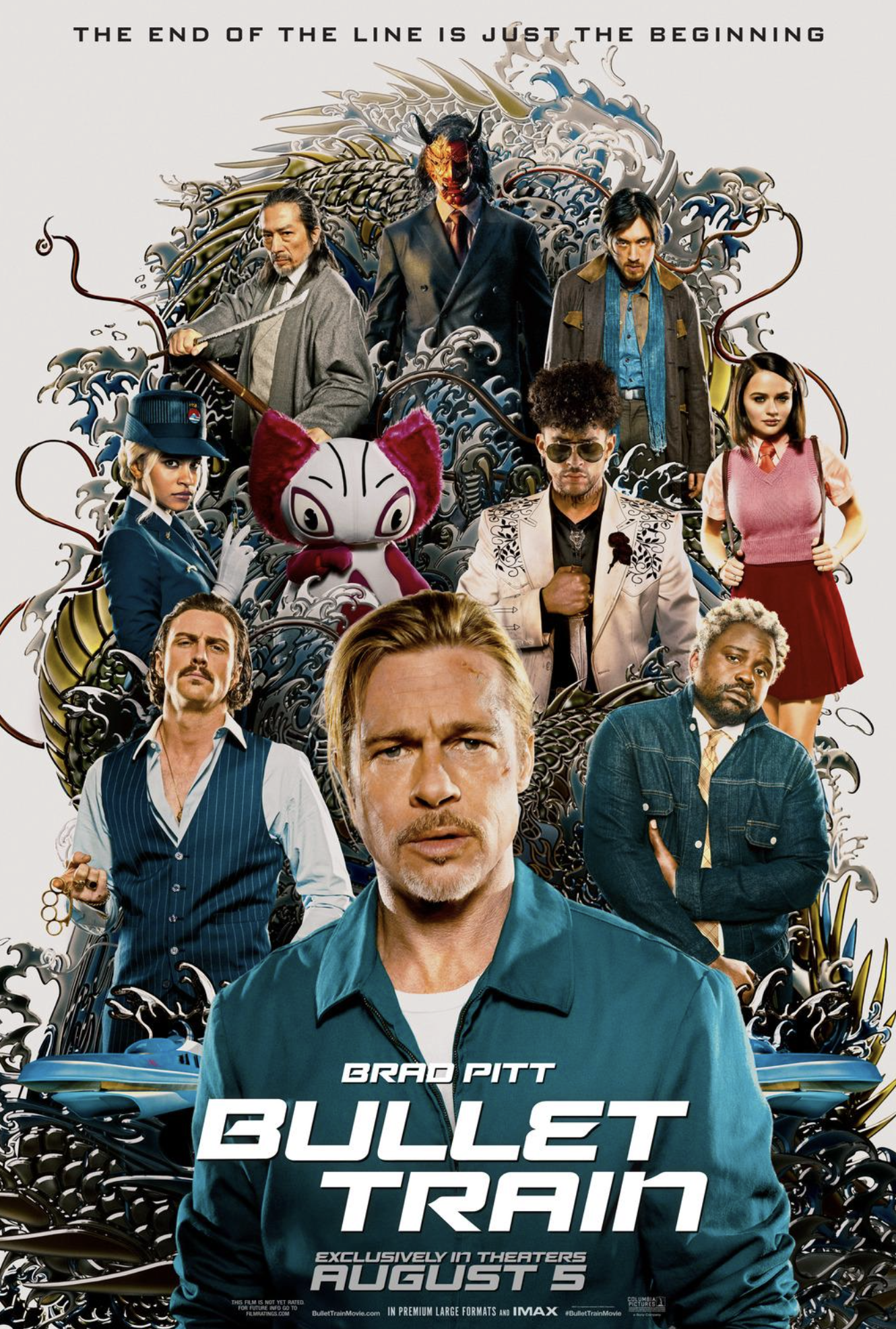Bullet Train - Film Review
By Conor Esslemont
Bullet Train, the newest film by stuntman-turned-director David Leitch, is as fashionably slick and stylish as you could desire. Leitch, an action veteran, previously helmed Atomic Blonde, Deadpool 2, and co-directed John Wick. He brings his characteristically smooth and agile filming style, indulging in all of the gun-fu and close-quarters action we have come to expect, as well as embellishing it with violently comedic moments and witty dialogue that draws just as much from anime as it does from Tarantino. While taking place almost entirely on the eponymous bullet train traveling from Tokyo to Kyoto, bullets fly, heads explode, and there’s a poison that makes people bleed from their eyeballs (because, why not?). The editing is snappy, often flickering between quick flashbacks and references, and the camerawork is inventive, doing its best to diversify the plethora of fight scenes taking place within the same cramped train cars.
Leading the star-studded cast is Brad Pitt as Ladybug, an unlucky hitman with a newly discovered pacifism and inner peace who would much rather be at a zen garden than on the job. Pitt is perfectly relaxed and charming as ever in the role, delivering dry humor and bewildered reactions to the unfortunate situations he finds himself in again and again (and rocking a bucket hat that would’ve been a questionable fashion choice on anyone else). His mission consists of discreetly snatching a suitcase on the train, quickly finding himself entangled in a web of plots, counter-plots, and unlucky encounters all revolving around the same MacGuffin suitcase.
The two stand-outs, though, are Aaron Taylor-Johnson and Brian Tyree-Henry as the twins Tangerine and Lemon: two bickering hitmen with rapid-fire exchanges that often revolve around Lemon’s obsession with Thomas the Tank Engine. The rest of the ensemble cast, which includes Michael Shannon, Zazie Beetz, and an underutilized Hiroyuki Sanada, make up a colorful array of assassins, gangsters, and ex-Yakuza, with a couple of fun cameos that surely elicited laughs in the theater.
Ironically, for a film set on a train going 200 mph, the story also has difficulty picking up momentum, partly due to the many different storylines, but also because the film indulges itself in a litany of flashbacks which are sometimes out of necessity but other times just for comedy. The film does its best to juggle these separate storylines, but the constant jumps between characters make the film appear unfocused, and the story’s many moving parts can be difficult to keep track of.
While many of these flashbacks are amusing, some cut in during climactic moments and defuse any building tension. We are shown character backstories, grizzly assassinations, more bleeding eyeball poisons, and even the perspective history of a particular water bottle that would have been really funny if not for its placement during the climax. The result is a story that is constantly picking up speed but never seems to hit its stride, and noticeably drags at the end of the second act. Fortunately, the final act pays off these interwoven stories along with a clever reveal before the film goes quite literally off the rails in a bombastic and ridiculous climax.
The comedy, which the film appears determined to include, is also hit or miss, with some gags causing just as many eyerolls as they do laughs. There are gruesome kills that are delightfully funny, while some of the insults and verbal zingers the characters hurl at one another seem forced.
Altogether, Bullet Train is an imperfect but fun experience that is fully aware of its ridiculousness and leans into it hard. The action is sharply choreographed, the violence bloody, and the characters animated enough to hold your attention despite an unevenly paced story.


